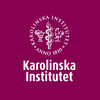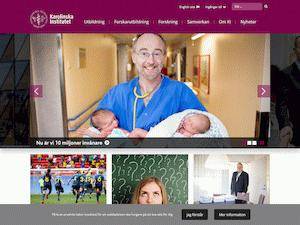The Erasmus Mundus Master Course in Public Health in Disasters (EMMPHID) is a joint university educational programme organized by the Unit for Research in Emergency and Disaster of the Universidad de Oviedo (Spain), the Centre for Research on Health Care in Disasters of the Karolinska Institutet (Sweden) and the Centre for Research on Epidemiology of Disasters of the Université catholique de Louvain designed to deliver high quality education and training in the field of Public Health in disaster situations. The Programme is sponsored by the European Union and also involves thirteen associated universities and institutions around the world.
The aim of the master programme is to, through knowledge, experience and research build capacities that will reduce disaster risks and contribute to better and more targeted public health based relief following disasters. The Master has the following four objectives:
I. To increase the knowledge and understanding of the disaster phenomenon, its different contextual aspects, impacts and public health consequences.
II. To increase the knowledge and understanding of the International Strategy for Disaster Reduction (UN-ISDR) and to increase skills and abilities for implementing the Disaster Risk Reduction (DRR) Strategy.
III. To ensure skills and abilities to analyse potential effects of disasters and of the strategies and methods to deliver public health response to avert these effects.
IV. To ensure skills and ability to design, implement and evaluate research on disasters.
Karolinska Institutet Information

 Established in 1810, Karolinska Institutet (Karolinska Institute) is a non-profit public higher education institution located in the urban setting of the large city of Stockholm (population range of 1,000,000-5,000,000 inhabitants), Stockholm County. Officially accredited and/or recognized by the Utbildningsdepartementet, Sverige (Ministry of Education and Research, Sweden), Karolinska Institutet (KI) is a medium-sized (uniRank enrollment range: 7,000-7,999 students) coeducational higher education institution. Karolinska Institutet (KI) offers courses and programs leading to officially recognized higher education degrees such as bachelor degrees, master degrees in several areas of study. See the uniRank degree levels and areas of study matrix below for further details.
Established in 1810, Karolinska Institutet (Karolinska Institute) is a non-profit public higher education institution located in the urban setting of the large city of Stockholm (population range of 1,000,000-5,000,000 inhabitants), Stockholm County. Officially accredited and/or recognized by the Utbildningsdepartementet, Sverige (Ministry of Education and Research, Sweden), Karolinska Institutet (KI) is a medium-sized (uniRank enrollment range: 7,000-7,999 students) coeducational higher education institution. Karolinska Institutet (KI) offers courses and programs leading to officially recognized higher education degrees such as bachelor degrees, master degrees in several areas of study. See the uniRank degree levels and areas of study matrix below for further details.
Eligibility Criteria
To be eligible for the EMMPHID master programme the applicant must be holder of a recognized primary degree in areas related to Health, Management and Administration or Social Sciences (a minimum of three years’ study at a university and of a minimum of 180 ECTS, or equivalent according to the regulations in the country of origin and to the European regulations).
The applicant academic record will preferably include studies in the following topics:
- Basic concepts in public health and epidemiological methods
- Introduction and basic principles in health sociology, psychology or economics
- Law and bioethics
- Special topics in public health and population sciences
- General approaches in public health, health promotion and health systems
- Principles of statistics
- General and financial management
- Environmental health
Offered Benefits
Contribution to travel and installation costs € 1,000 per year per scholarship holder resident of a Programme Country for travel costs. € 2,000 per year for travel costs + € 1,000 for installation costs for scholarship holder resident of a Partner Country whose location is situated at less than 4.000 km from the EMMC coordinating HEI. € 3,000 per year for travel costs + € 1,000 for installation costs for scholarship holder resident of a Partner Country whose location is situated at 4.000 km or more from the EMMC coordinating HEI. Contribution to subsistence costs (for both programme and partner country scholarship holders) € 1,000 per month for the entire duration of the EMMC study programme (24 months maximum).


 Established in 1810, Karolinska Institutet (Karolinska Institute) is a non-profit public higher education institution located in the urban setting of the large city of Stockholm (population range of 1,000,000-5,000,000 inhabitants), Stockholm County. Officially accredited and/or recognized by the Utbildningsdepartementet, Sverige (Ministry of Education and Research, Sweden), Karolinska Institutet (KI) is a medium-sized (uniRank enrollment range: 7,000-7,999 students) coeducational higher education institution. Karolinska Institutet (KI) offers courses and programs leading to officially recognized higher education degrees such as bachelor degrees, master degrees in several areas of study. See the uniRank degree levels and areas of study matrix below for further details.
Established in 1810, Karolinska Institutet (Karolinska Institute) is a non-profit public higher education institution located in the urban setting of the large city of Stockholm (population range of 1,000,000-5,000,000 inhabitants), Stockholm County. Officially accredited and/or recognized by the Utbildningsdepartementet, Sverige (Ministry of Education and Research, Sweden), Karolinska Institutet (KI) is a medium-sized (uniRank enrollment range: 7,000-7,999 students) coeducational higher education institution. Karolinska Institutet (KI) offers courses and programs leading to officially recognized higher education degrees such as bachelor degrees, master degrees in several areas of study. See the uniRank degree levels and areas of study matrix below for further details.